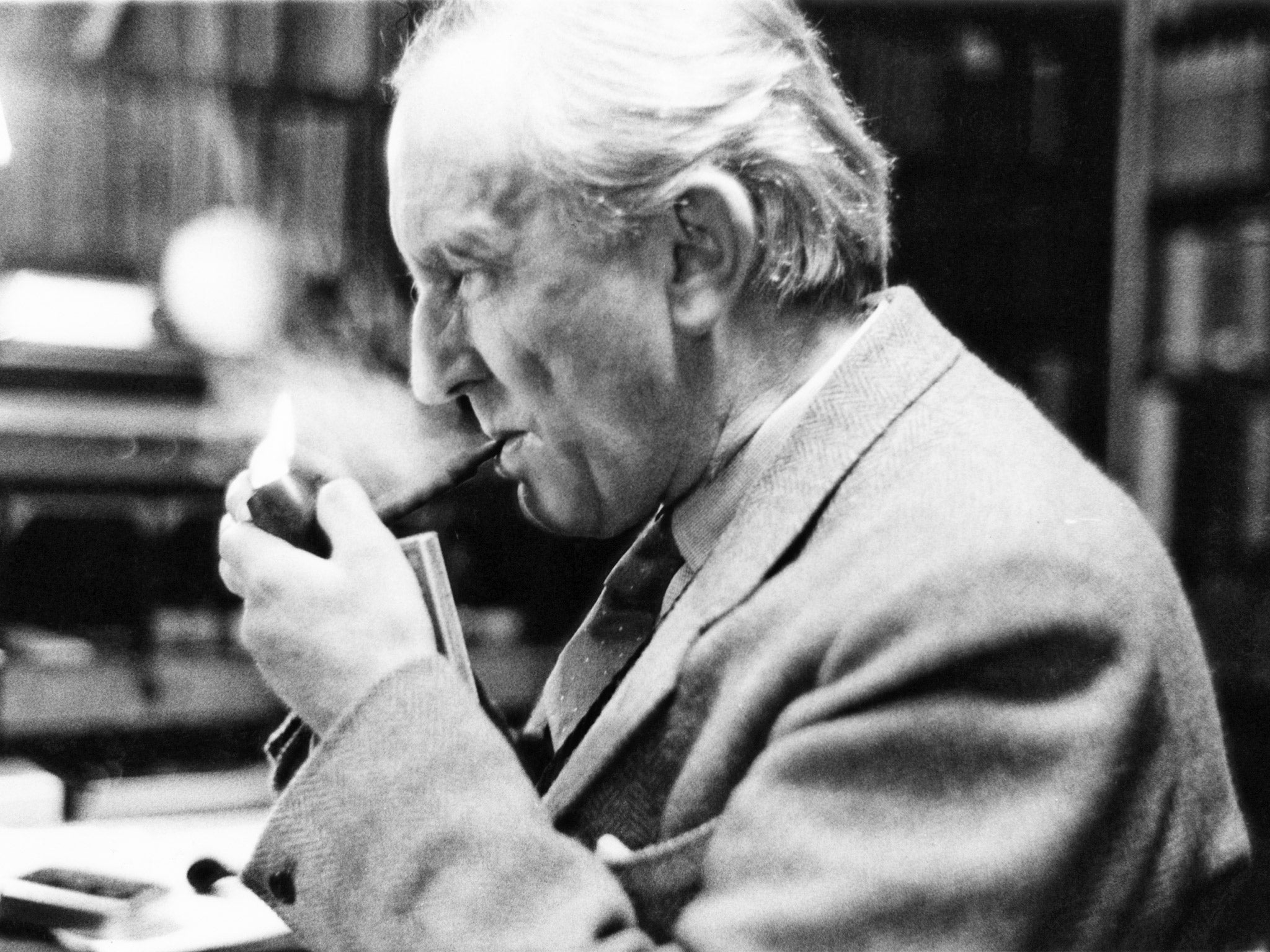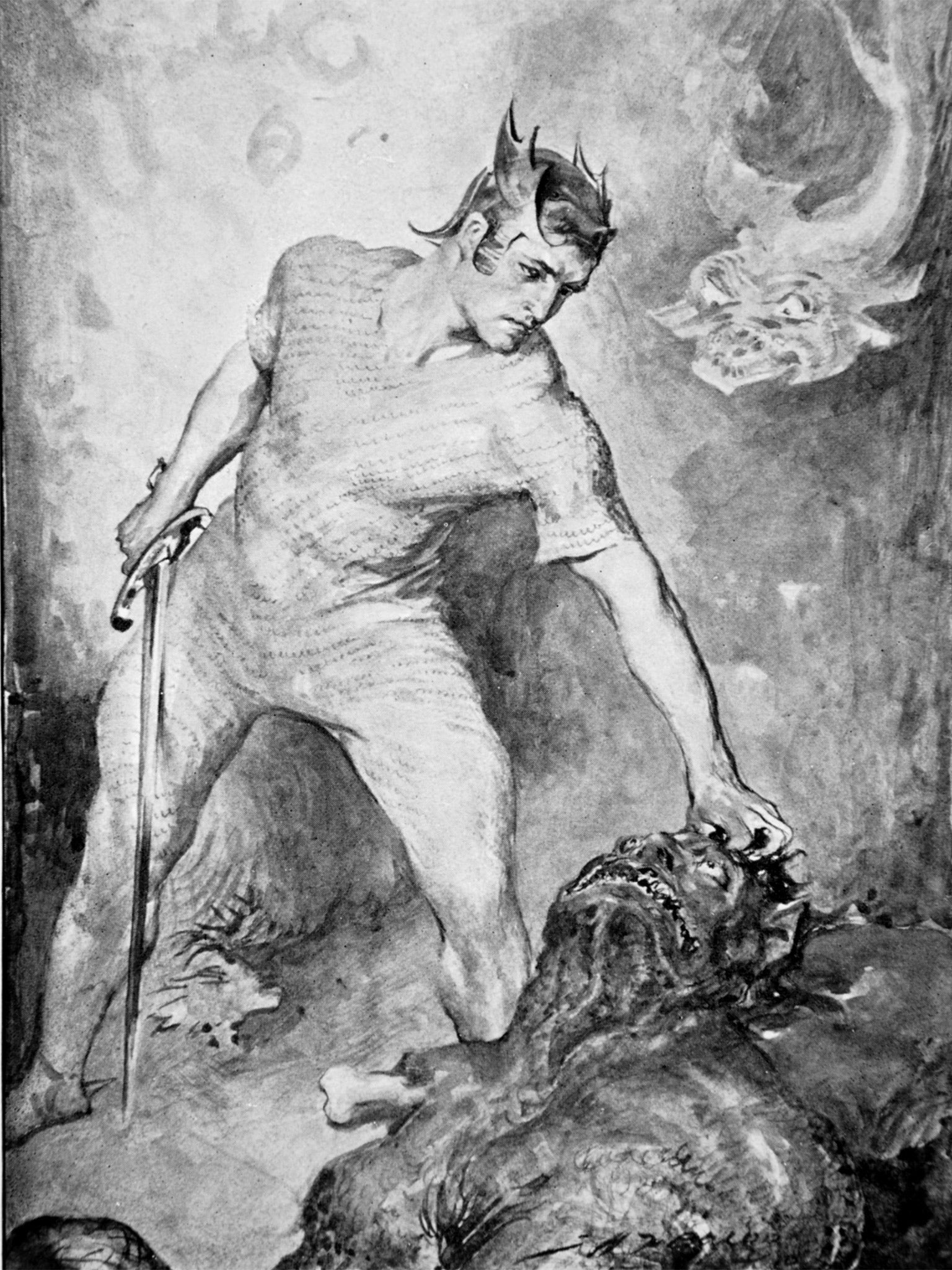JRR Tolkien's translation of Beowulf to be published after 88 years
Epic poem believed to have inspired Lord of the Rings and The Hobbit

Your support helps us to tell the story
From reproductive rights to climate change to Big Tech, The Independent is on the ground when the story is developing. Whether it's investigating the financials of Elon Musk's pro-Trump PAC or producing our latest documentary, 'The A Word', which shines a light on the American women fighting for reproductive rights, we know how important it is to parse out the facts from the messaging.
At such a critical moment in US history, we need reporters on the ground. Your donation allows us to keep sending journalists to speak to both sides of the story.
The Independent is trusted by Americans across the entire political spectrum. And unlike many other quality news outlets, we choose not to lock Americans out of our reporting and analysis with paywalls. We believe quality journalism should be available to everyone, paid for by those who can afford it.
Your support makes all the difference.JRR Tolkien’s translation of Beowulf, the epic that helped inspire The Lord of the Rings and The Hobbit, is to be published for the first time almost 90 years after completion.
Beowulf: A Translation and Commentary will be published in May with the “distinctive” 1926 translation alongside a commentary taken from his lecture notes made throughout the 1930s.
The new book, to be published in the UK by HarperCollins, has been edited by the author’s son Christopher Tolkien, who said the attention to detail in the lectures gives rise to “a sense of immediacy and clarity of his vision”.
“It’s as if he entered into the imagined past: standing beside Beowulf and his men shaking out their mail-shirts as they beached their ship on the cost of Denmark.”
Beowulf, written in the 11th century, is the longest epic poem in Old English, with the one surviving manuscript held in the British Library. It has inspired countless translations, including a notable take in 1999 by Irish poet Seamus Heaney.
This marks the first new work by JRR Tolkien published since The Fall of Arthur, an unfinished poem about the legend of King Arthur, published last year.
Stuart Lee, a member of the English faculty at the University of Oxford, said: “Beowulf was a text that thrilled Tolkien throughout his lifetime. He taught it and studied it and, along with many medieval texts he worked on, they found their way into his fiction.”

He continued: “Tolkien’s unpublished material is of such a high quality that it deserves publishing. He was a fantastic scholar.”
Scholars had known about the text and there had been rumours that a Tolkien translation of Beowulf could be published; but many were taken by surprise and delighted it was so close to release.
“Any translation and commentary by JRR Tolkien will be worth looking at, and any work by his son Christopher is always of high quality. It’s very exciting this is coming out,” Dr Lee said.
“It should be interesting to fans of his fiction, because Beowulf was probably the medieval text that influenced him the most,” Dr Lee said, who described the commentary and lectures as “nuggets of gold”.
The translation was completed quite early in the writer’s career.
“He was lecturing for more than 30 more years,” Dr Lee said, “working with Beowulf and engaging with it.”
Tolkien was professor of Anglo-Saxon at Pembroke College, Oxford. Of his 1936 lecture at the British Academy, which scholars described as “absolutely seminal”, Mark Atherton, also of the university’s English faculty, said: “If he had never written Lord of the Rings, he would have been famous in academic circles for writing one published lecture called 'The Monsters and the Critics'. It turned things upside down.”
Tolkien wrote The Hobbit shortly after he completed the translation and his tale of Bilbo Baggins’ journey is heavily influenced by Beowulf, according to Edward James, emeritus professor of medieval history at Anglia Ruskin University.
He said: “He gets the dragons in The Hobbit straight from the dragons in the final section of Beowulf.” The riders of Rohan in The Lord of the Rings are also believed to be based on the epic poem.
Professor James: “Heaney’s translation helped sell an enormous amount of copies to people who wouldn’t otherwise have read it. This should sell to a different community who won’t perhaps have heard of Heaney but will read anything Professor Tolkien has written.”
Join our commenting forum
Join thought-provoking conversations, follow other Independent readers and see their replies
Comments